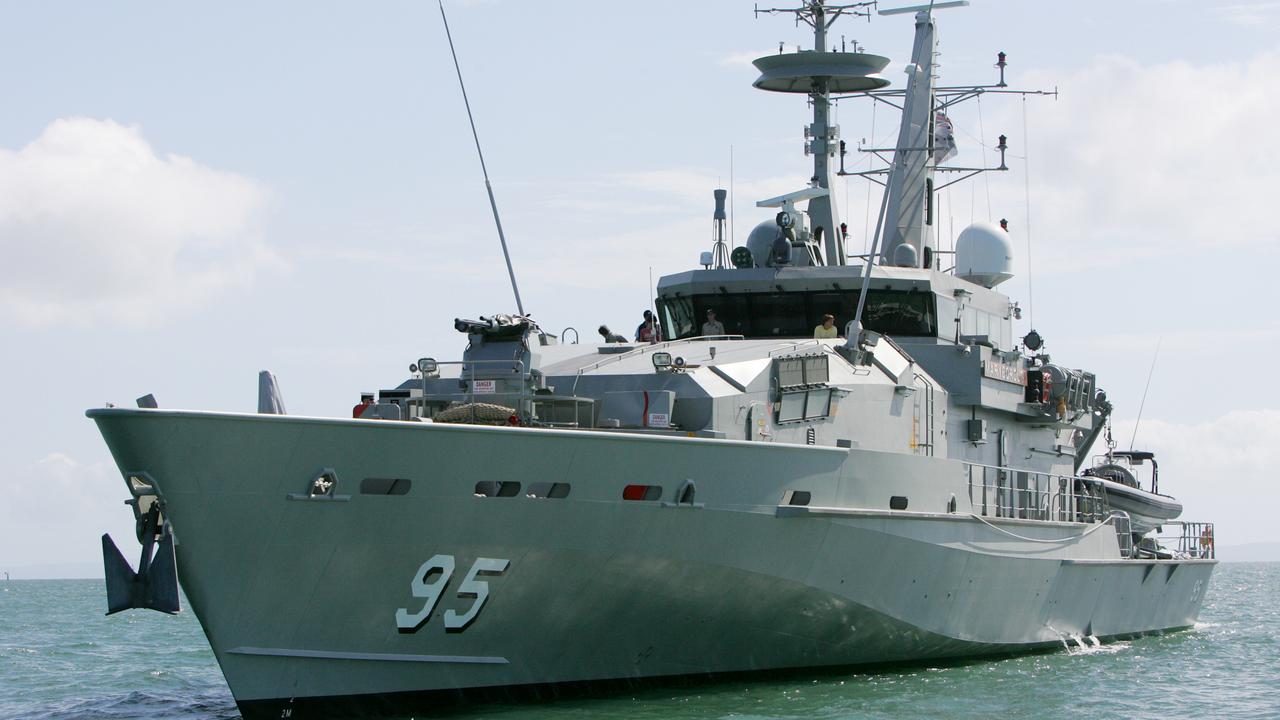Japan pushes strategic ties in hard sell on submarines
Japan believes if Australia bought its Soryu-class subs it would strengthen a growing trilateral security relationship.

Julie Bishop has been given the hard sell on Japan’s submarines from all levels up to and including Prime Minister Shinzo Abe during her two-day visit to Tokyo.
At each major meeting, including with Foreign Minister Fumio Kishida and Defence Minister Gen Nakatani, the Japanese have reinforced their central selling pitch, that Australia should buy its future submarines from Japan because of the strategic benefits to both countries.
Japan believes that if Australia bought its Soryu-class subs it would strengthen the growing trilateral security relationship with Australia, Japan and the US at a time of a rising China.
It has told Ms Bishop that submarines bought from either of the other two contenders, France and Germany, would not deliver the same strategic benefits.
“I have noted that Japan has promoted the strategic aspects of their bid,” the Foreign Minister said in Tokyo yesterday.
“I would expect that the Japanese government would promote what it sees as the strengths of its bid. Likewise, other countries will be promoting what they see as the strengths of their bid. “
However, she said the decision on which submarines to buy would be based on many factors.
“We want to ensure that our new submarine fleet is able to provide the most high-quality, capable fleet that we’re able to purchase,” Ms Bishop said.
Asked by a Japanese journalist about media reports that the US wanted Australia to choose Japan, Ms Bishop said Washington had stated it would remain neutral. “I should say that the US has said publicly that it recognises Australia’s sovereign right to determine the outcome of the competitive evaluation process,” she said.
“I think all three bidders understand that Australia is seeking to have the highest-quality capability that we are able to achieve.”
Ms Bishop has been constrained in what she can say to Japanese leaders about the submarine bid, given that all three countries have already lodged their bids and Defence is evaluating the merits of each. In Tokyo, she has remained neutral in her discussions on submarines and has refrained from debating the strengths and weaknesses of each of the bids.
Ms Bishop said she had thanked Japan for its interest in the project and for its bid.
She had told the Japanese that a winning bidder would be chosen later this year.
Japan’s bid proposes an extended version of its 4000-tonne Soryu-class boat to give it a longer range to suit the needs of the Royal Australian Navy.



